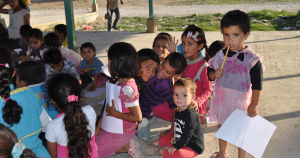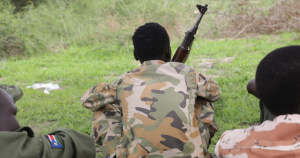The Hague, November 11, 2019
The Gambia’s case against Myanmar at the International Court of Justice (ICJ) for violating the Genocide Convention, filed on November 11, 2019, will bring the first judicial scrutiny of Myanmar’s campaign of murder, rape, arson, and other atrocities against Rohingya Muslims, 10 nongovernmental organizations said today.
States that are party to the 1948 Convention on the Prevention and Punishment of the Crime of Genocide agreed that genocide “whether committed in time of peace or in time of war, is a crime under international law which they undertake to prevent and to punish” and, by extension, have an obligation not to commit it. The convention permits member states to bring a dispute before the ICJ alleging another state’s breach of the convention, and states can seek provisional measures to stop continuing violations.Myanmar became a party to the Genocide Convention in 1956.
“The Gambia’s legal action triggers a judicial process before the world’s highest court that could determine that Myanmar’s atrocities against the Rohingya violate the Genocide Convention,” said Param-Preet Singh, associate international justice director at Human Rights Watch. “The court’s prompt adoption of provisional measures could help stop the worst ongoing abuses against the Rohingya in Myanmar.”
The nongovernmental organizations supporting the initiative are No Peace Without Justice, the Association pour la Lutte Contre l’Impunité et pour la Justice Transitionnelle, the European Center for Constitutional and Human Rights, the International Federation for Human Rights (FIDH), Global Centre for the Responsibility to Protect, the Global Justice Center, Human Rights Watch, the International Bar Association Human Rights Institute, Parliamentarians for Global Action, and the Women’s Initiatives for Gender Justice.
In its first Genocide Convention case, the ICJ imposed provisional measures against Serbia in 1993 and eventually found that Serbia had violated its duty to prevent and punish genocide in Bosnia-Herzegovina.
Canada, Bangladesh, Nigeria, Turkey, and France have asserted that Myanmar committed genocide against the Rohingya. The Organization of Islamic Cooperation (OIC) has encouraged its 57 members to bring Myanmar before the court. Malaysia’s prime minister has also alleged that Myanmar committed genocide against the Rohingya and called for efforts to bring Myanmar before the court.
“As a country recently emerging from decades of brutal dictatorship, The Gambia’s leadership on the Rohingya genocide is especially striking and welcome,” said Alison Smith, international justice director at No Peace Without Justice. “Other members of the Genocide Convention should follow The Gambia’s lead and lend their clear and unwavering support.”
In September 2019, the United Nations-backed Independent International Fact-Finding Mission on Myanmar concluded that “Myanmar is failing in its obligation to prevent genocide, to investigate genocide and to enact effective legislation criminalizing and punishing genocide.” The fact-finding mission highlighted “the enormity and nature of the sexual violence perpetrated against women and girls” during Myanmar’s military campaign as one of seven indicators of the state’s intent to destroy the Rohingya people.
“The Gambia’s proceedings before the ICJ offer countless survivors of sexual violence and other victims some hope that Myanmar could legally be held to account for its ruthless campaign against the Rohingya,” said Melinda Reed, executive director at Women’s Initiatives for Gender Justice.
Legal actions addressing individual criminal responsibility are also underway at the international level. The fact-finding mission has called for the investigation and prosecution of Myanmar’s military leaders for genocide, crimes against humanity, and war crimes in Rakhine State in Myanmar, the state where most Rohingya lived.
The UN Human Rights Council has established an Independent Investigative Mechanism for Myanmar, which is mandated to collect evidence of the most serious international crimes and prepare files for criminal prosecution. The International Criminal Court (ICC) prosecutor, Fatou Bensouda, has sought to open an investigation for the crime against humanity of deportation and possibly other offenses, but a broader investigation would need a referral by the UN Security Council.
The Myanmar government has failed to prosecute or punish perpetrators of human rights abuses. The current domestic commission of enquiry established by the government follows eight failed commissions and lacks credibility, and its chair has stated that it will not hold those responsible for abuses to account.
“The Gambia’s case before the ICJ could pressure Myanmar to reverse its course of violence and live up to its obligation under the Genocide Convention to punish those responsible,” said Andrea Giorgetta, Asia director at the International Federation for Human Rights.
On November 11, the 10 organizations convened a meeting in The Hague with Abubacarr Tambadou, The Gambia’s attorney general and justice minister, and members of his legal team; several representatives of the Rohingya community; and others who have supported this initiative. The meeting provided an update on the initiative, addressed the implications of state responsibility under the Genocide Convention for deterring further crimes and providing redress the victims, and discussed the role that civil society groups and other stakeholders could play in such an inter-state dispute.
For more information, please contact:
In Brussels, for No Peace Without Justice, Alison Smith (English, French, Italian): +32-486-986-235; or asmith@npwj.org
In The Hague, for Human Rights Watch, Param-Preet Singh (English): +1-917-586-1140; or singhp@hrw.org
In The Hague, for International Federation for Human Rights, Amal Nassar (Arabic, English): +31-650-411-865; or anassar@fidh.org
In The Hague, for Global Justice Center, Akila Radhakrishnan (English): +1-408-582-4704; or aradhakrishnan@globaljusticecenter.net
In The Hague, for Parliamentarians for Global Action, Frederika Schweighoferova (Czech, English, French, Slovak, Spanish): +31-616-047-032; or schweighoferova@pgaction.org
In The Hague, for Women’s Initiatives for Gender Justice, Melinda Reed (Dutch, English, French): +31-623-943-855; or melinda.reed@4genderjustice.org
In Berlin, for European Center for Constitutional and Human Rights, Alexandra Lily Kather (English, German): +49-30-29680589; or kather@ecchr.eu
In London, for International Bar Association Human Rights Institute, Daniel Romana St. Matthew (English): +44-(0)7940-731-915 (English); or romana.daniel@int-bar.org
In New York, for Global Centre for the Responsibility to Protect, Nadira Khudayberdieva (English, Russian): +1-646-318-5470; or nkhudayberdieva@globalr2p.org
See statements from individual co-signatories here:
- Women’s Initiatives for Gender Justice: https://4genderjustice.org/wp-content/uploads/2019/11/Statement-on-The-G…
- International Bar Assocication’s Human Rights Institute: tinyurl.com/wt7d2nc




